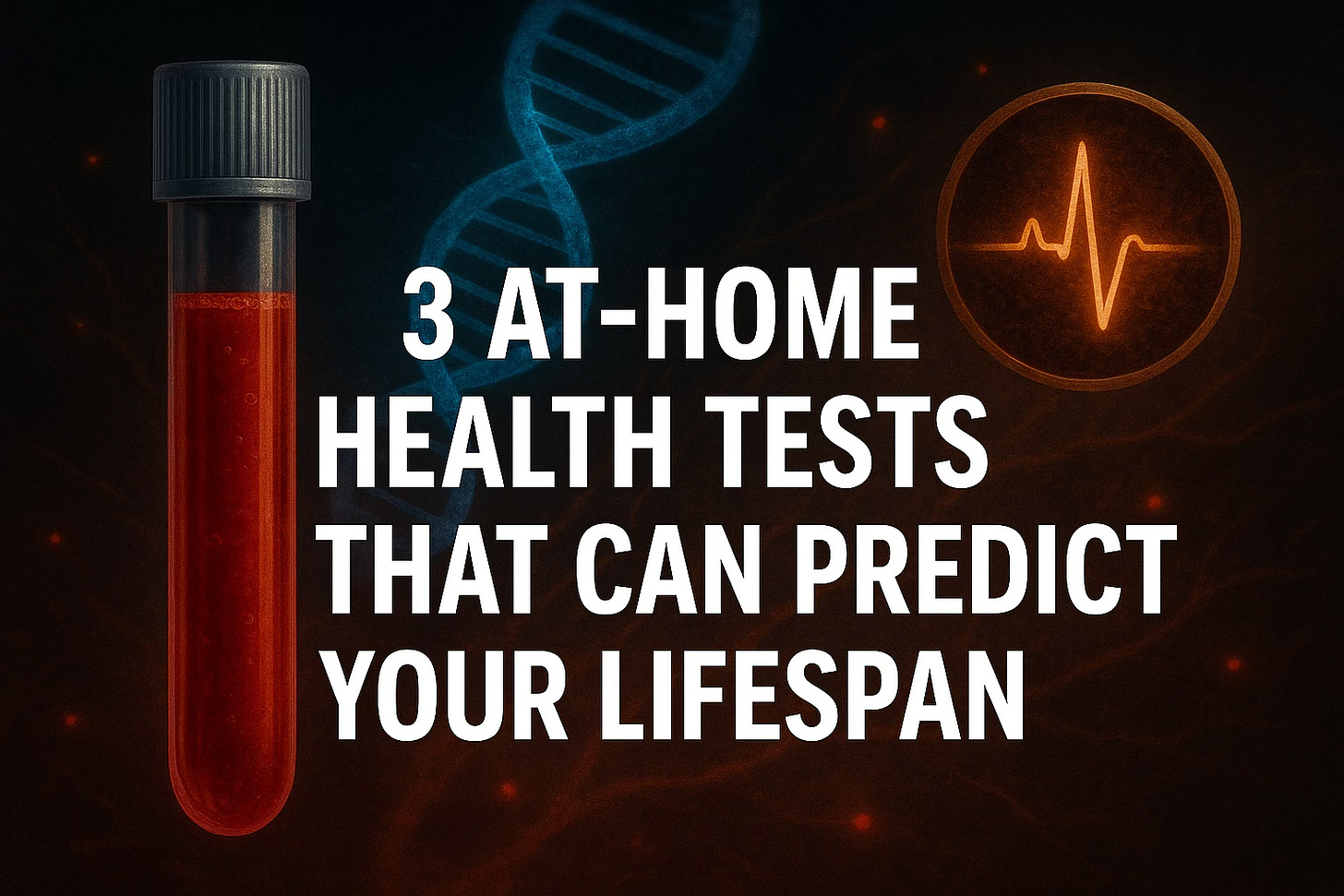3 At-Home Health Tests That Can Predict Your Lifespan.
Skip the expensive scans. These basic measures predict who thrives — and who doesn’t.
The science of longevity is complex.
So are some of the tests we use to predict longevity.
This complexity, while necessary and useful, often distracts from the simpler approaches that arguably add as much value as the complex tests.
When evaluating markers of longevity, genetics play a major role, particularly for exceptional longevity and living past 1001.
Gene variants in APOE and FOXO3A have consistently been linked to longevity.
If you have one or more of these gene variants, that is great news.
But here’s the thing.
For exceptional longevity, genetic factors account for up to 48% of the variance in age 2.
That means that at least half of the variance in extreme longevity comes down to environmental and lifestyle factors.
Factors that you control.
For average lifespans, ie out to age 80 or so, the impact of genetics is even less at about 20-30%3.
This means that for most people, 70-80% of the variance in age can be attributed to modifiable lifestyle factors.
This is a huge deal.
But what are the tests you can do to assess if you are on track to live a long and healthy life?
And not just a longer life but one at a higher quality, whereby you can do more of the things you want to do in old age.
Answering this is not about a blood test but about assessing your functional status.
I.e., what you can do now compared to what you should be able to do.
Let’s cover three tests you can do at home to give you some insight into this question.
Single Leg Stand Test.
Keep reading with a 7-day free trial
Subscribe to Dr Paddy Barrett to keep reading this post and get 7 days of free access to the full post archives.



